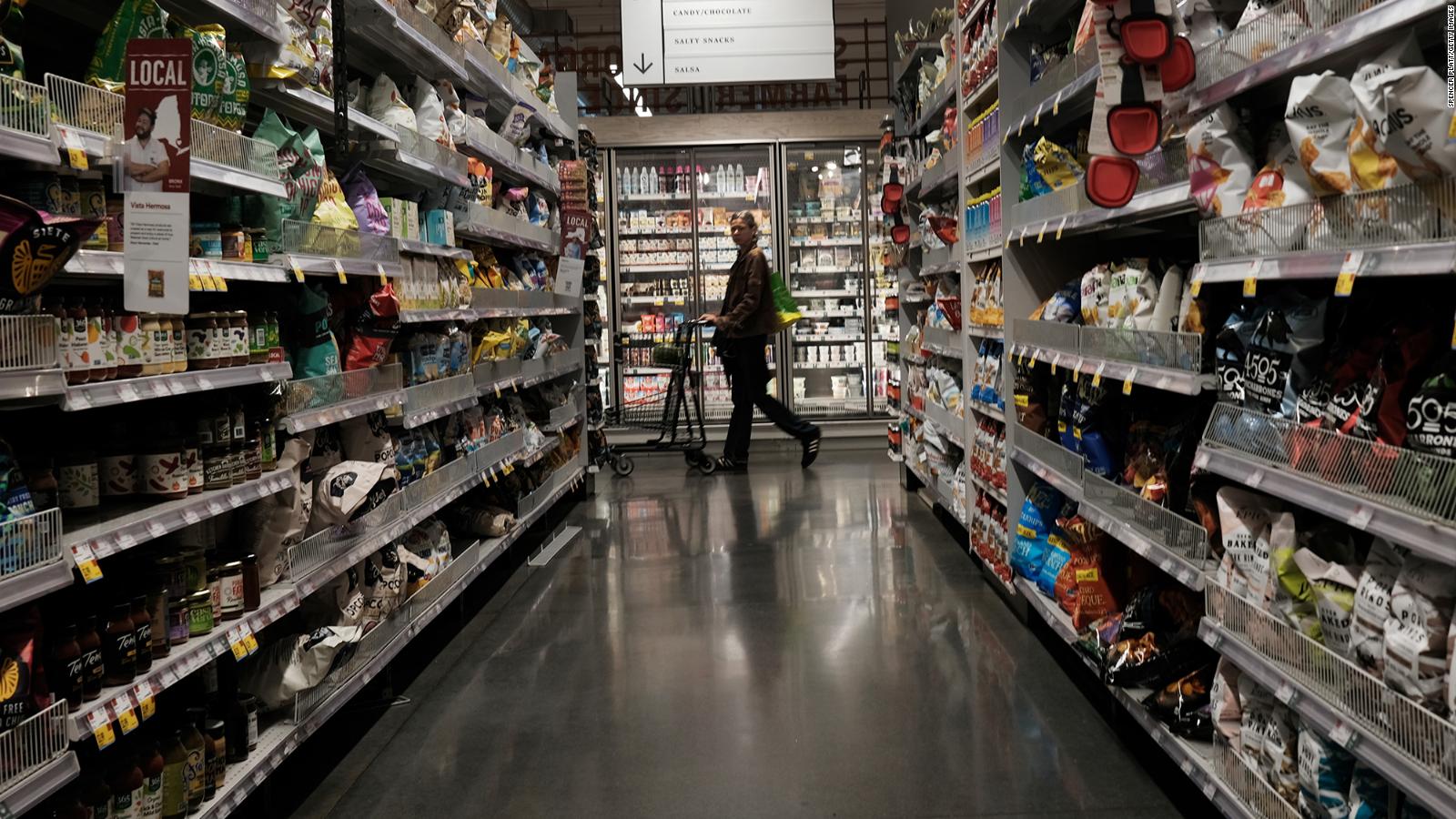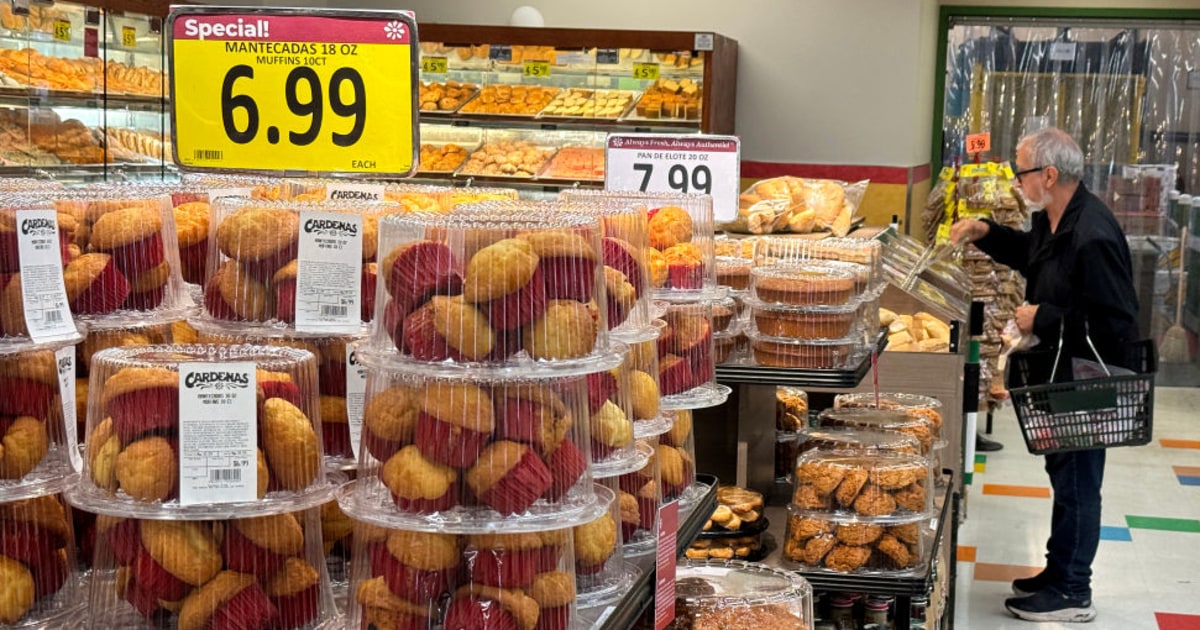Sales of luxury products increase in the US 1:26
New York (CNN Business) --
Prices are rising for just about everything, forcing millions of Americans to make increasingly difficult choices.
More than 8 in 10 consumers plan to rethink or even cut back on product spending in the next three to six months, according to a new report from market research firm The NPD Group.
"There is a tug-of-war between the consumer's desire to buy what they want and the need to compromise due to higher prices hitting their wallets," said Marshal Cohen, NPD's senior advisor to the Retail Sector.
Switch to cheaper products, buy less
When store prices continue to rise, consumer behavior experts say many shoppers make three changes: They buy or switch to cheaper alternatives;
they stop spending on non-essential things like eating at restaurants, but allow themselves small pleasures like flowers and candles.
What's more, when they go to the supermarket for those must-haves, Cohen says shoppers not only buy less overall, but also make fewer "impulse purchases."
Supermarkets are designed to entice shoppers to grab a pack of gum or a toy car during their weekly grocery and household haul.
But that doesn't happen so much in times of inflation.
General goods stores such as Walmart are suffering from the crisis as households buy less with each trip to the store, Cohen said.
advertising
6 steps to better use of money 5:56
NPD data shows that consumers were already making fewer general merchandise purchases in the first quarter of 2022 compared to the same period a year earlier.
Consumers bought 6% fewer items at general merchandise stores in the first quarter of this year compared to a year ago, and how often they shopped also fell 5% in the quarter, compared to a year ago. year.
Walmart revealed in its latest earnings release last month that inflation has changed the buying patterns of its customers, who have opted for cheaper private-label meat and dairy products, purchased fewer items per trip to the store, and They have moved away from the optional items.
Rival Target painted a similar picture during its latest earnings call, saying shoppers were holding back on non-essential purchases of housewares, furniture, TVs and appliances.
Even discount stores, such as so-called $1 stores (many of which are now $1.25 stores), report that their wallet-conscious shoppers feel pressured by "headwinds." of inflation.
Dollar General said in its recent earnings call that customers are shopping "more deliberately" at its stores, switching to lower-priced products.
"We've seen an acceleration in our own-brand business as well in the last couple of weeks. That's a real sign that [the customer] is starting to feel the pressure," Dollar General CEO Todd Vasos said during the call.
Cohen pointed to another change for low-income customers that is driving the change: During the pandemic they had more optional spending thanks to government stimulus.
Now that has changed drastically and they are having to adjust their buying behavior.
Hispanics affected by inflation must choose how to spend their money 2:32
Forgoing the big purchases, but keeping little extras to feel good
Consumers will continue to cut their spending this year, according to Cohen, cutting back on dining out, gym memberships and services such as frequent manicures.
"As far as gourmet restaurants go, we may not be back to pre-pandemic levels until 2025," Cohen said.
"We won't go out as much, and when we do, we'll pay more."
What else will consumers stop buying?
Pretty much anything purchased during the pandemic that doesn't need to be updated or replaced.
For example, "many of us bought an air fryer because we frequently cook at home. They don't need another. The same goes for televisions," says Cohen.
Yet amidst all this austerity, there is something of a paradox in which consumers are willing to spend in a category that is decidedly non-essential: little things that lift your spirits.
These discretionary purchases are both personally and financially subjective, says Chuck Howard, associate professor of marketing at Texas A&M's Mays School of Business.
For some people, it might be possible to splurge a little on a favorite fragrance, and for others, it might be grabbing a candy bar at the checkout.
The common theme is that it is a temporary respite during a period of uncertainty.
The prices of almost everything in the supermarket have increased, except rotisserie chicken.
We explain why
"It can be nice to take a 20-minute bath with your favorite products at the end of a long day, when you've been constantly worrying about how you're going to pay all your bills in three months," says Howard.
This could be why sales of products like home fragrances and candles are holding up reasonably well.
Executives at Bath & Body Works, which sells scented soaps, body
sprays
and candles, described these products as "affordable luxury" in a recent call, adding that customers were still stocking up:
Sales of plug-in soaps and air fresheners increased in the last quarter compared to the previous year.
This is the so-called "lipstick effect," which occurs when consumers spend on small luxuries, such as perfume or high-end beauty products, even in times of crisis, according to Priya Raghubir, a marketing professor at the Stern School of Business. from New York University.
He expects spending on some major luxuries to continue in the short term as well.
"The difference with this inflationary cycle is that we are coming out of a pandemic. People have many repressed needs. They have been dreaming of a vacation for more than two years, of celebrating life events with family and friends," says Raghubir.
"There won't be as big of a decline in travel and leisure."
But those leniency could also mean shoppers are giving up something else, said Neil Saunders, retail analyst and managing director of GlobalData Retail.
"Basically, this is an environment where people are having to choose," he added.
"If they buy one thing, they may not be able to afford another. This forced choice in the store could continue, and even deepen."
"We are still in the early stages of inflation," Saunders said.
"If higher prices persist longer, the changes will be more pronounced: spending will be cut faster and faster."
US inflation




/cloudfront-eu-central-1.images.arcpublishing.com/prisa/PLLMQZDHVVEMHBHGHSS4ZY4A2E.jpg)




/cloudfront-eu-central-1.images.arcpublishing.com/prisa/X33WQ3GSYFF3DBKJDAVIGHN3DA.jpg)





